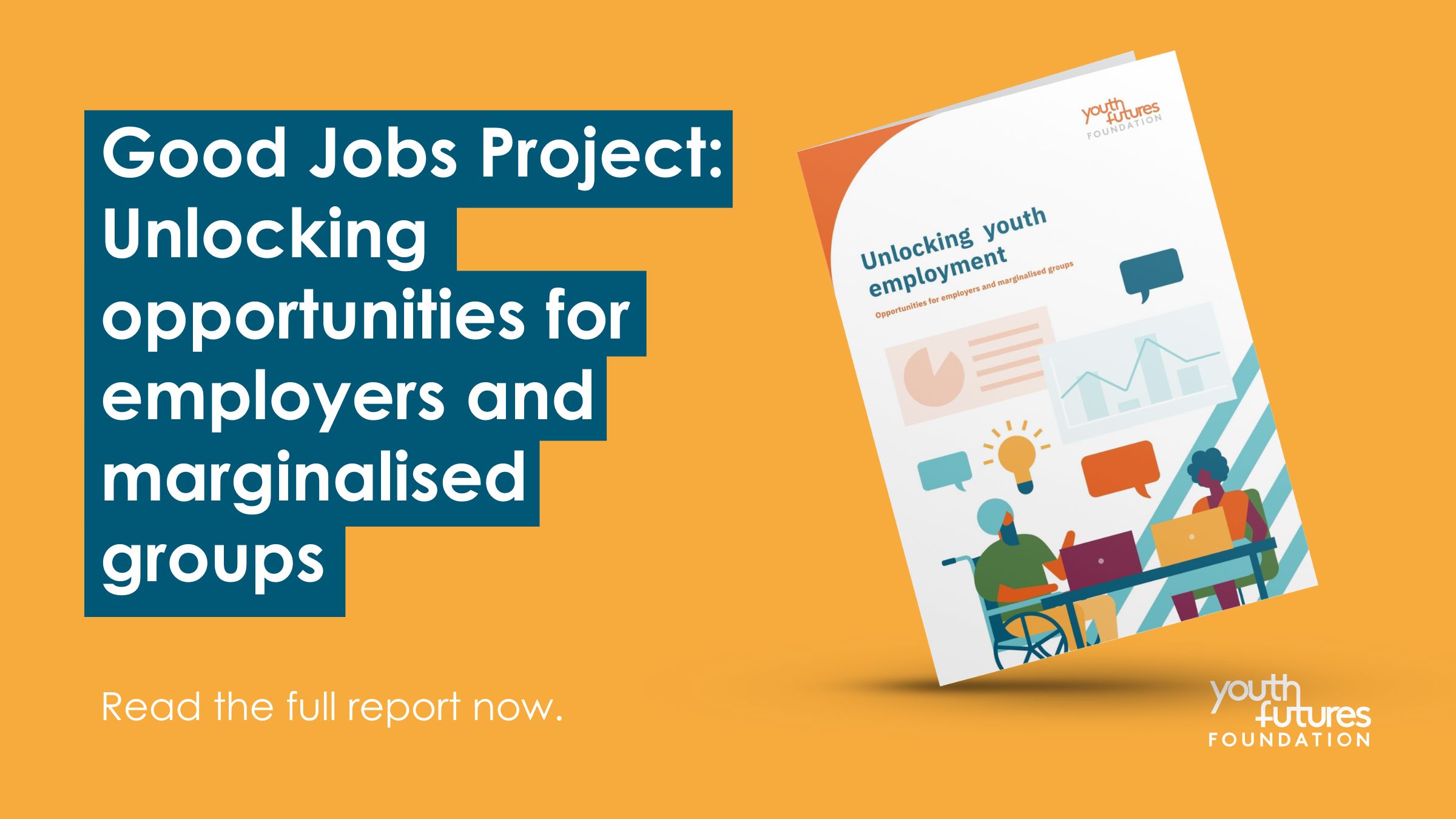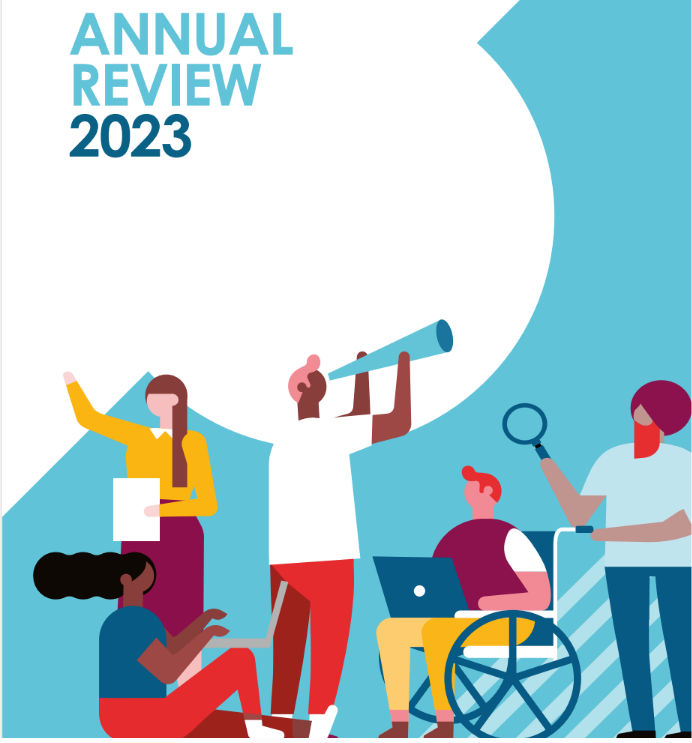Youth Futures is part of the Good Jobs Project, a collaborative initiative led by ReGenerate, bringing leaders together to reduce the barriers that some groups face in accessing work.
To understand employer perceptions and practice in actively recruiting marginalised individuals, new research was commissioned to explore blockers and opportunities they experience in tapping into this overlooked talent pool.
In response to the research findings, we produced a focused report on what employers say about recruiting marginalised young people and highlight transformation and improvement opportunities. Here, our Strategy Manager, Eleanor Marsea delves into what the research says.
What is the Good Jobs Project?
The Good Jobs Project adopts an employer’s perspective. It designs solutions for our current tight labour market, based on employers’ needs. Simultaneously, the project acknowledges the very specific barriers that marginalised groups face when trying to access work.
Increased competition for candidates is driving employers to seek untapped talent that may have been previously overlooked through existing recruitment practice. This presents an opportunity. Employers fill their vacancies while focusing on social benefit as the outcome – namely good quality jobs for marginalised individuals who face significant barriers to employment, alongside boosting the economy by growing the workforce.
The research provides evidence on employers’ current engagement with marginalised groups across society, such as minoritised groups, those with experience of the criminal justice system and care leavers, amongst others. Analysing results from a survey of 500 HR leaders and 30-40 qualitative interviews from a range of industries, it explores:
- the relationship between their awareness of particular groups,
- their intention to recruit and any subsequent action in doing so, alongside
- the blockers they face in the process and their desire for change
Read the Executive Summary here.
What did we learn about employers’ perspectives of young people?
The research shows that employers are aware that marginalised groups exist, however there are significant gaps between what employers are aware of, intend to do, and what they deliver.
The findings also reveal disparities in employers’ perceptions of different marginalised groups. There is a correlation between negative perceptions of how someone might fit into their organisation and the lack of action taken to recruit from these groups.
While employers were more likely to be positive about how young people would fit into their organisation compared to other marginalised groups, less than half (48%) had young people in their workforce, and less than a third (28%) took active steps to recruit young people.
The findings told a similar story to our previous research and understanding. There are higher barriers for employers seeking, or thinking about recruiting, young candidates with experiences of the criminal justice system or the care system, than other groups. Only 12% said they took active steps to recruit or support care leavers.
More positively, employers’ believe that there is a strong business case for hiring a more diverse group of employees. There is a desire from employers to change their behaviour and practice, by using evidence-based tools, resources and advice.
With this endorsement from employers, we call for a coordinated effort across business, government and civil society to improve and future-proof pathways into employment and in-work support for young people facing marginalisation.
Where do we go from here?
By placing employer practice and behaviour at the heart tackling youth unemployment, we will ensure that marginalised young people are not seen as the problem in a deeply flawed system.
Employers have a key role in enabling young people to successfully access good jobs. At Youth Futures Foundation, we continue our commitment to collaborating with employers, finding opportunities to learn from and share our evidence.
But to support employers and young people from marginalised groups, we recognise the need for a joined-up system. We call on the Government to provide more financial support and incentives to employers hosting young apprentices. This will boost the take-up of apprenticeships by marginalised groups, such as care leavers, whilst ensuring that employers have the resource to provide high-quality support and operational infrastructure.
One of our Future Voices Ambassadors, with experience of the care system, told us:
As independent and mature as we might be, due to our life experiences, it’s important for employers to remember that care leavers are still young people who need support when entering the world of work; sometimes in ways that our peers may not need. This could be help with administrative tasks, such as finding our national insurance number and applying for ID documents, filling out personal details. All of this can be complicated, especially if you’ve just left the care system. These can create barriers to accessing work, but they could easily be broken down by the proposal for more funding for both care leavers in apprenticeships and their employers.
To see the full version of the our analysis of the findings from the Good Jobs Project relating to young people and our recommendations, read our report Unlocking Youth Employment: Opportunities for employers and marginalised groups.


